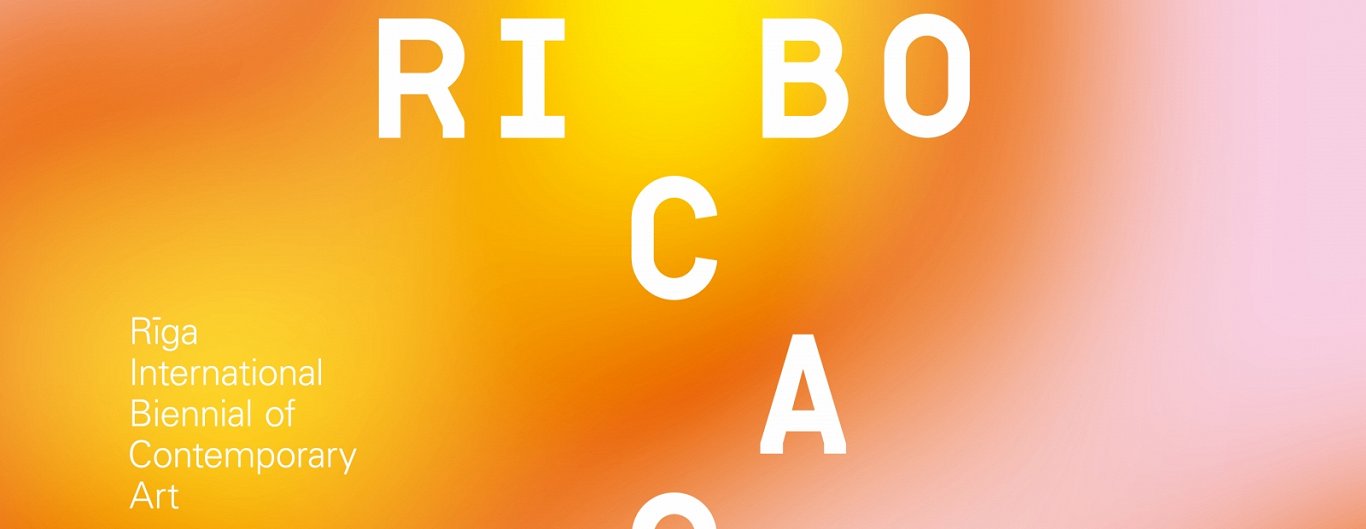The biennial will use the slogan "and suddenly it all blossoms" (sic) and is curated by French art historian Rebecca Lamarche-Vadel who describes it in these terms:
"The collapse of the world, which the show was speculating on, actually happened, offering a challenging yet historical chance to make RIBOCA2 even more relevant. Amidst the Covid-19 pandemic, our ways of building and understanding relationships are being confronted, as we realise that we, porous to visible and invisible interactions, are participating subjects in a broad and diverse landscape far more complex than our bodies and minds alone."
Visitors can expect to see wide variety in the contemporary artworks displayed, organizers said, starting with a series of billboard poems by Hanne Lippard.
"These texts evoke the “contactless” relationships that build the world we live in, its speed, ephemerality, and distance towards one another. Passing the gates of this immense territory and entering the first hangar, visitors stumble upon Ugo Rondinone’s monumental rainbow sculpture life time opens up perspectives on our understanding of time and existence. Due to the impossibility of transporting the original work, a new version was reconstructed in materials sourced locally in Riga. Hanged on a brick wall above a small door, the work stands as the prologue of an exhibition built as an odyssey. Passing this threshold, visitors encounter a wide field of stones and rubble of demolished buildings from around Riga, transformed daily by Bridget Polk’s rock balancing practice. The ephemeral and almost magically built sculptures are held in seemingly impossible balances and stage a poetic re-appropriation of ruins and building of new worlds through patience and resilience," reads the description.
Continuing through the site, an installation involving logs on the waterfront by Lina Lapelytė and architect Mantas Petraitis "reflects on the relationship between men, natural resources and the force of the river in a performative representation of vitality and desire."
The largest venue of the Biennial is a former port building with 36 works on view. Valdis Celms, a pioneer of the Latvian kinetic art movement is included and is likely to be a crowd-pleaser with two projects first designed in the 1970s - "large-scale kinetic sculptures that aim to invoke cosmic movements and energies that exist beyond human perception."
Meanwhile Pawel Althamer’s installation is described as "a vast empty room in the exhibition space, which will gradually be filled by the visitor’s contributions. Originally planned as a celebratory, collective and Dionysiac drawing session for the night of the opening, the work had to be reinvented."
Other artworks include the use of crochet to explain a complex mathematical theory and the building of snowmen using soil. Another work will be described by a guide due to the fact that the artwork in question itself "could not be shipped, finished, or even begun due to the abrupt pause of the world’s dynamics and production systems."
During the three-week exhibition run, performances (Bridget Polk, Dominika Olszowy, IevaKrish, Bendik Giske, Nina Beier and Dora Budor), artist talks (Lina Lapelyte, Marguerite Humeau, Valdis Celms, Oliver Beer, Tomas Saraceno, Emanuele Coccia, Jaanus Samma in conversation with Uku Lemper and Ineta Lipše, and a continuation of the Biennial’s online series of conversations with Jack Halberstam, Avery F. Gordon, Vinciane Despret), guided tours and public programmes will be held while ensuring health and safety condition.
A special RIBOCA2 family Sunday will be held on 23 August with a full day of activities and workshops for parents and children.
Admission will cost 6 euros for adults, 3 euros for children aged seven and older and senior citizens. Children under seven and people with disabilities can gain admission free of charge, as can pets.
More details are available at the official website.























